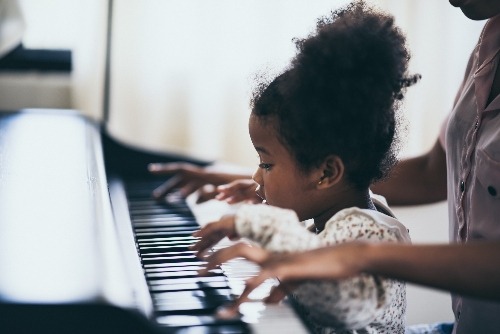
Music has long been recognized as a universal language, and recent studies highlight its power to support learning and emotional growth in individuals with autism. One particular area gaining interest is piano lessons for autism. These lessons serve as more than just a musical education; they can be therapeutic and aid in development.
Why Consider Piano Lessons for Autism?
Structured and engaging, piano lessons for autism offer a unique blend of cognitive, emotional, and social benefits. Here’s why:
- Enhances Focus: The intricate process of learning piano requires sustained attention, which can help improve focus and concentration.
- Boosts Communication Skills: Music can be a way for non-verbal individuals to express emotions and thoughts, fostering better communication.
- Improves Motor Skills: Playing the piano requires coordinated hand movements, enhancing fine motor skills and hand-eye coordination.
- Increases Self-Esteem: Mastering a piece of music can provide a sense of accomplishment, boosting self-confidence.
- Reduces Anxiety: The rhythm and repetition in music can have a calming effect, helping to alleviate anxiety symptoms.
Key Considerations When Choosing Piano Lessons
Not all piano classes are created equal, especially when it comes to neurodiverse individuals. Here are essential factors to bear in mind:
- Instructor’s Experience: Ensure the instructor has experience working with students on the autism spectrum.
- Customized Lessons: The lessons should be adapted to the individual’s needs, focusing on both strengths and challenges.
- Positive Reinforcement: A supportive and encouraging teaching style can make a significant difference.
- Structured Environment: A predictable and safe environment is crucial for effective learning.
- Flexible Scheduling: Consistency is vital, but flexibility allows for adjustment based on the student’s comfort level.
FAQs About Piano Lessons for Autism
Q: At what age can children with autism start piano lessons?
A: There is no set age; it depends on the child’s interest and readiness. Generally, starting from ages 5-7 is ideal, but older children and even adults can also benefit.
Q: How can I know if my child is ready for piano lessons?
A: Look for signs of interest in music or rhythms, willingness to follow instructions, and the ability to sit and focus for short periods.
Q: Can piano lessons replace traditional therapies for autism?
A: Piano lessons should complement traditional therapies, not replace them. They offer unique benefits but are most effective when integrated with other therapeutic interventions.
Read more about Piano lessons for Special Needs here.
The transformative power of piano lessons for autism lies in their ability to blend educational, therapeutic, and emotional elements. When approached thoughtfully, these lessons can unlock a world of potential and joy for individuals on the autism spectrum.





